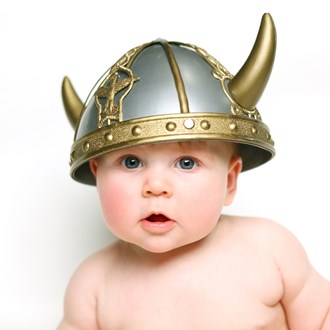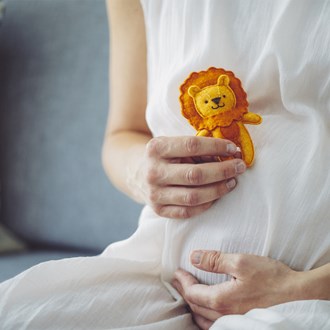Cramping during early pregnancy: are cramps normal?

Your guide to tummy pain
By Alex Harmon
February 01 2019
Cramping during early pregnancy can be worrisome, but rest assured most occurrences are simply a regular part of growing a baby. Tummy cramps are common, especially during the first and second trimester as you body undergoes numerous changes to prepare for your baby.
Is cramping normal during pregnancy?
Yes. Doctors have a few reasons that explain why women get cramps during pregnancy. One of the first occurrences of cramping happens during implantation of the fertislised egg. Implantation cramping, as it’s known, happens within eight to ten days after ovulation. Not all women will experience cramping, some will note a mild pulling or tingling feeling and this is often accompanied by spotting or bleeding.
The pregnancy hormone, progesterone, can relax the digestive muscles, leading to stomach cramps. Pregnant women can often expect other irritating side effects such as constipation and indigestion.
As you enter the second trimester, around 12 or 13 weeks, you may experience some abdominal pain and this is due to the rapid expansion of the round ligament. This is the structure that supports the uterus and as it stretches you may feel a sharp pain or a dull ache in your lower abdomen.
Braxton Hicks contractions occur as early as the first trimester, although you usually don’t feel them until the second trimester, and these can cause a cramping sensation. The feeling is often described as uncomfortable, rather than painful. This isn’t a sign of impending labour but the body’s way of toning the muscles in your uterus and preparing the cervix for birth. Braxton Hicks contractions will come and go, usually lasting for around 30 seconds at a time.
Many women will worry that cramping is a sign of miscarriage, but cramping alone isn’t an indication of pregnancy loss. If you experience severe cramping as well as bleeding and passing of fluid from your vagina, speak to your doctor immediately.

getty images
What do pregnancy cramps feel like?
Cramping will feel different for all women, and the levels of severity are broad. Cramps range from mild pressure, pulling, stretching or aching similar to period-pain all the way to a sharp stabbing feeling in the abdomen. Generally speaking, pregnancy cramps are mild and intermittent, occurring on and off for one to three days, meaning they are tolerable and manageable so you can go about your daily routine.
Leg cramping in pregnancy
Another discomfort many women experience in pregnancy is leg cramps. These are a sudden sharp pain in the calf muscles or feet, often happening at night. It is completely normal and comes from changes to your weight, metabolism or can be a sign of vitamin deficiency. As with any cramping, gentle exercises to get the blood flowing in the legs can help.

getty images
When to seek medical advice
See your doctor or midwife if your cramping turns into sharp pains or if you experience bleeding, faintness, fever and chills, a loss of fluid from your vagina or pain when you wee.
Sometimes pregnancy cramping can be mistaken for something more serious, such as pelvic inflammatory disease, yeast infection or a urinary tract infection (UTI). See your doctor if the pain becomes more intense.
Also see your doctor if the pain is increasingly severe as the cramping could be a sign of ectopic pregnancy or placenta abruption, both serious medical complications.
Remember, your uterus is a muscle and any time it contracts, there's potential for cramping. Try to relax, only attempt light exercise, drink plenty of fluids and go easy on yourself, mama.













